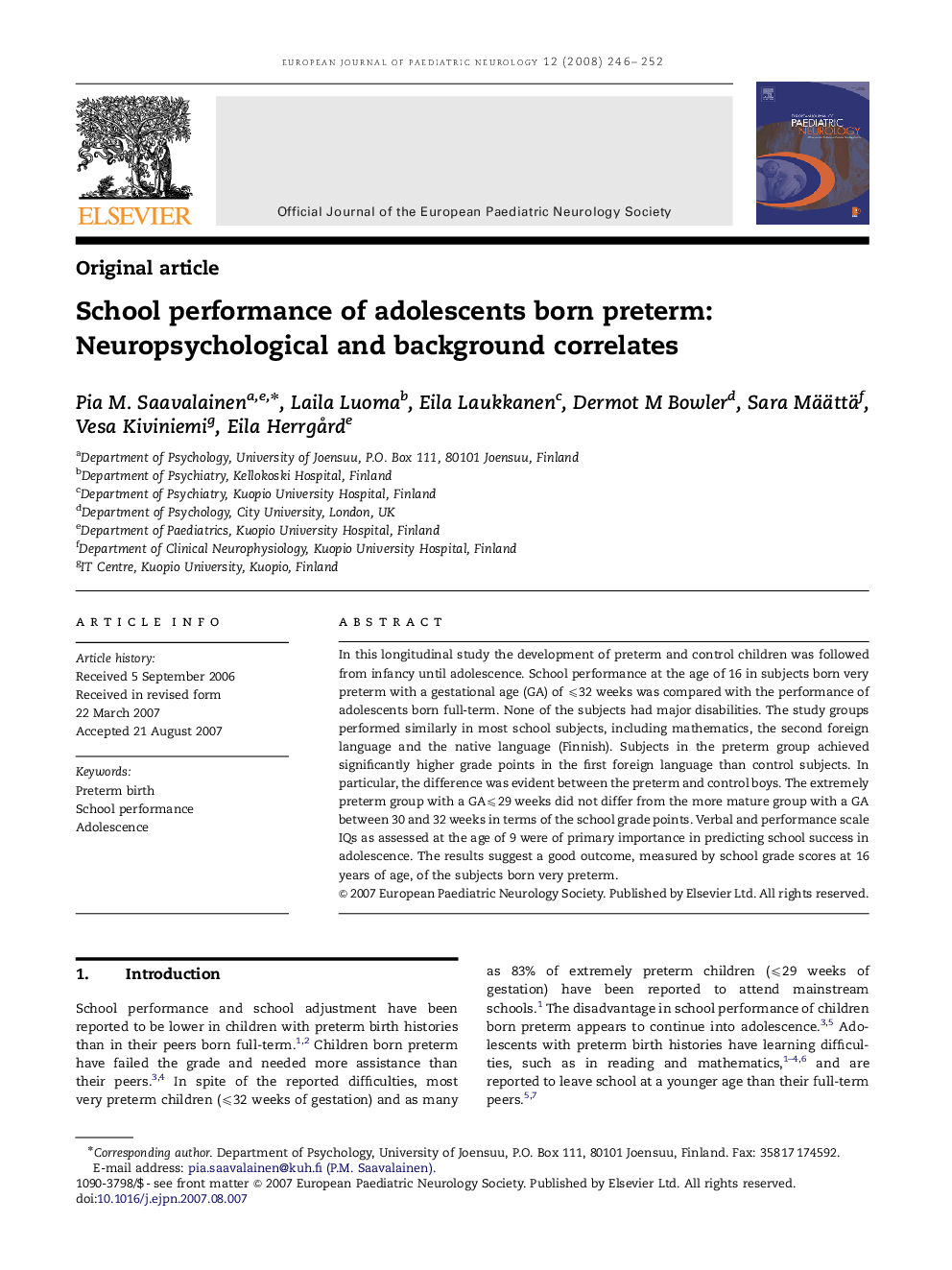| Article ID | Journal | Published Year | Pages | File Type |
|---|---|---|---|---|
| 3055055 | European Journal of Paediatric Neurology | 2008 | 7 Pages |
Abstract
In this longitudinal study the development of preterm and control children was followed from infancy until adolescence. School performance at the age of 16 in subjects born very preterm with a gestational age (GA) of ⩽32 weeks was compared with the performance of adolescents born full-term. None of the subjects had major disabilities. The study groups performed similarly in most school subjects, including mathematics, the second foreign language and the native language (Finnish). Subjects in the preterm group achieved significantly higher grade points in the first foreign language than control subjects. In particular, the difference was evident between the preterm and control boys. The extremely preterm group with a GA⩽29 weeks did not differ from the more mature group with a GA between 30 and 32 weeks in terms of the school grade points. Verbal and performance scale IQs as assessed at the age of 9 were of primary importance in predicting school success in adolescence. The results suggest a good outcome, measured by school grade scores at 16 years of age, of the subjects born very preterm.
Related Topics
Life Sciences
Neuroscience
Developmental Neuroscience
Authors
Pia M. Saavalainen, Laila Luoma, Eila Laukkanen, Dermot M Bowler, Sara Määttä, Vesa Kiviniemi, Eila HerrgÃ¥rd,
